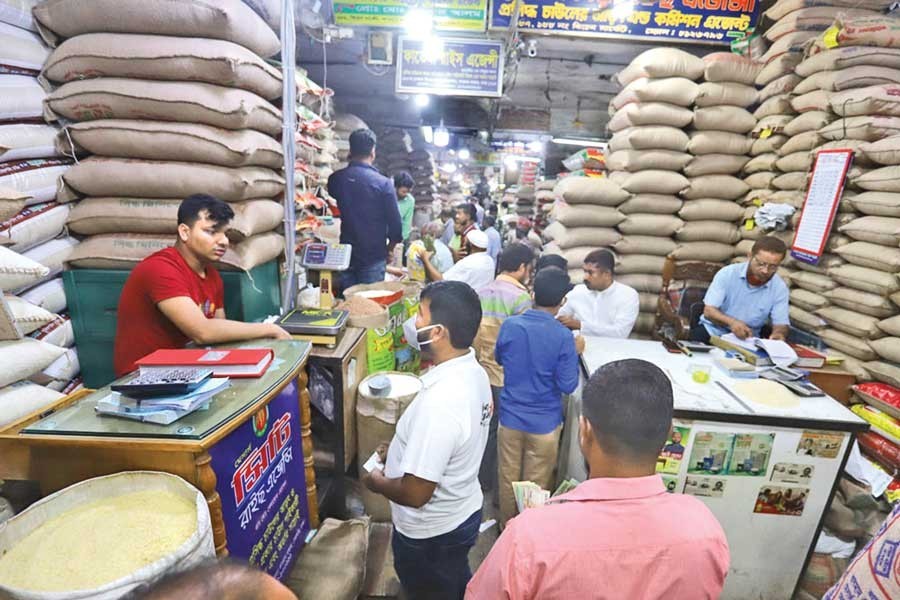Mohammad Nahian
Published:2021-11-30 01:55:18 BdST
Rice prices up despite ample supply
The prices of rice varieties are going up over the last couple of days in the kitchen markets across the capital despite an adequate supply.
The upswing of prices hits the lower income group hard burdened with pressure to come to terms with purchase capacity.
While visiting several kitchen markets on Sunday, this correspondent found that on average, rice price has risen up by Tk 1 to Tk 2 per kilogramme despite an optimum supply.
In the retail market, Miniket, a variety of rice, sells at Tk 58 to Tk 62, Nazirshail at Tk 60 to Tk 65, Paijamat Tk 46 to Tk 48, Atashat Tk 50 to Tk 52, Lata at Tk 55 to Tk 56 and Swarna at Tk 42 to Tk 43 a kilogramme.
However, the rice traders claim that in the wholesale market, Miniket sells at Tk 55 to Tk 60 and Paijam at Tk 47.
Md Siddik, owner of Madina Rice Agency at Mirpur-1, said: “The price of paddy has increased and so has rice. Besides, the fuel price hike has also put an impact on the rice market.”
“Currently, the increased transportation cost has also led the price of different rice varieties to go up by Tk 1 – Tk 2.”
Serajul Alam, a consumer at Karwan Bazar, said, “The price of essentials is going through the roof every day, and that for vegetables and rice is also going beyond my means.”
Earlier on November 21, the High Court directed the authorities concerned to submit a list of all auto rice mills involved in producing Miniket and Najirshail by polishing coarse rice.
In the rule, it said if health risks are associated with the consumption of shredded rice, then why inactiveness on the part of the authorities concerned should not be declared illegal and why order should not be given to stop such activities.
Earlier on November 5, rice price spiraled in both wholesale and retail ends after its import period ended on October 30.
On August 6, the food ministry in a letter asked the National Board of Revenue (NBR) to reduce import duty on the food staple.
Later on August 12, the NBR cut the duty on rice import from 62.5 per cent to 25 per cent, saying the facility would expire on October 30.
On November 3, The Trading Corporation of Bangladesh (TCB) started selling essential goods on trucks every day excluding holidays which ended on November 28 (yesterday).
Unauthorized use or reproduction of The Finance Today content for commercial purposes is strictly prohibited.


